Decade of Regional Cooperation on Gender Mainstreaming in Security Sector Reform in Western Balkans
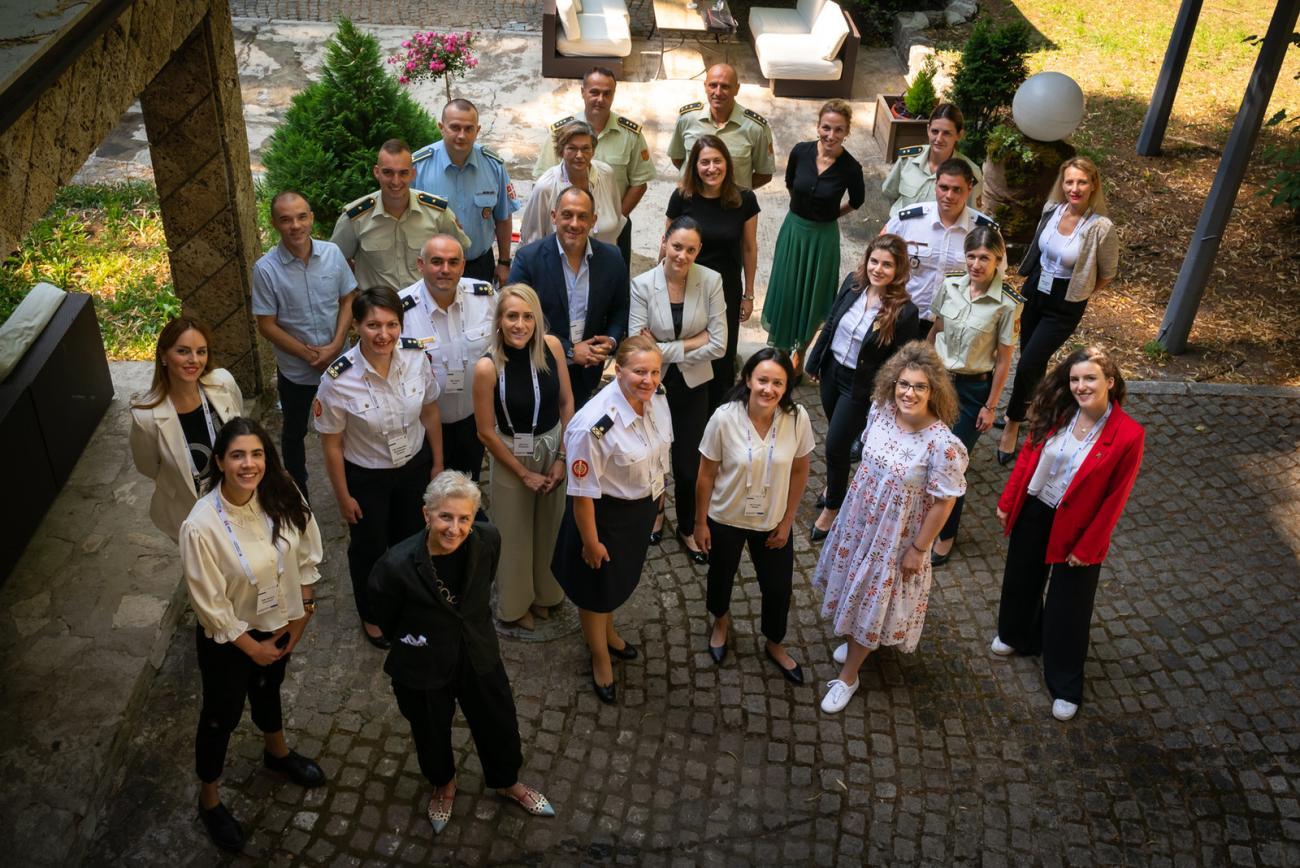
Achieving gender equality in the security sector is critical for ensuring the safety and security of all citizens and achieving sustainable peace.
The Women, Peace, and Security Agenda recognizes women as key actors in promoting peace and security. Moreover, gender equality plays a pivotal role in achieving Sustainable Development Goals.
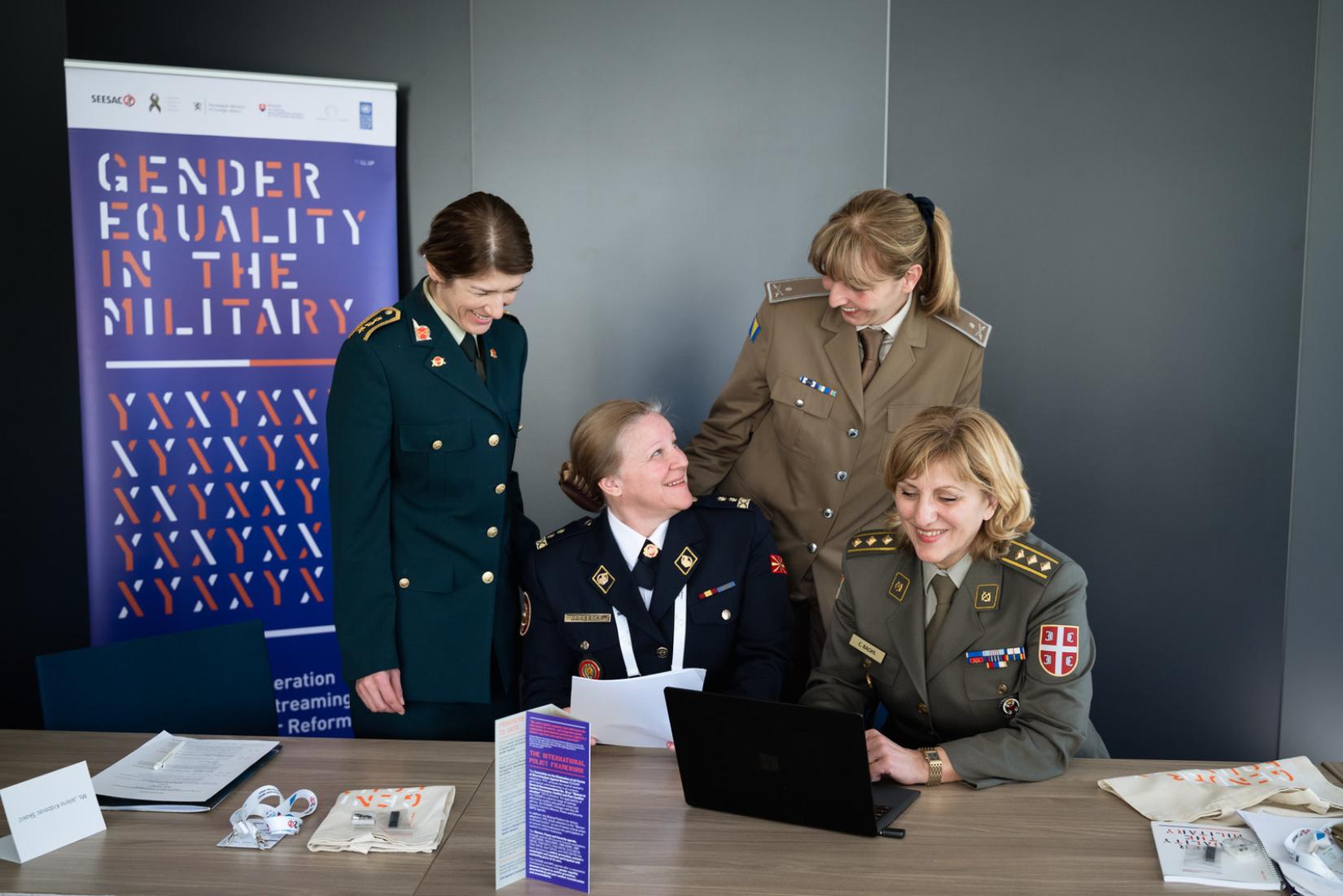
Since 2012, UNDP SEESAC facilitates regional cooperation among the Ministries of Defence (MoDs) of Bosnia and Herzegovina, Montenegro, the Republic of North Macedonia, and the Republic of Serbia on Gender Mainstreaming in Security Sector Reform in line with the WPS Agenda. The regional initiative is supported by the Kingdom of Norway and the Slovak Republic and implemented in close cooperation with the MoDs and Armed Forces.
In 2022, with SESAC’s timely and expert support MoDs continued regional information sharing, knowledge exchange, and learning through regional meetings, and demand-driven small-scale projects. The MoDs Gender Equality Mechanisms are further strengthened to efficiently respond to gender-based discrimination, sexual harassment, and abuse as well as to develop and implement gender-responsive human resources police. Gender awareness continued to be increased and a greater understanding achieved for mainstreaming gender in military education and training.
Regional cooperation platform of Gender Equality Mechanisms in Ministries of Defence
In 2022, the regional cooperation platform on gender in the military continued facilitating the information sharing, knowledge exchange, and joint planning of activities thus functioning as the project’s backbone. SEESAC organized the 14th in April and the 15th in December, gathering representatives of GEMs, decision-makers, and military commanders to discuss and plan the activities on gender perspective in the military, thus upholding the Women, Peace and Security and Sustainable Development Goals Agenda. The meetings also served as a platform for the presentation of results achieved and priorities set by the MoDs, for sharing the good practices and lessons learned.
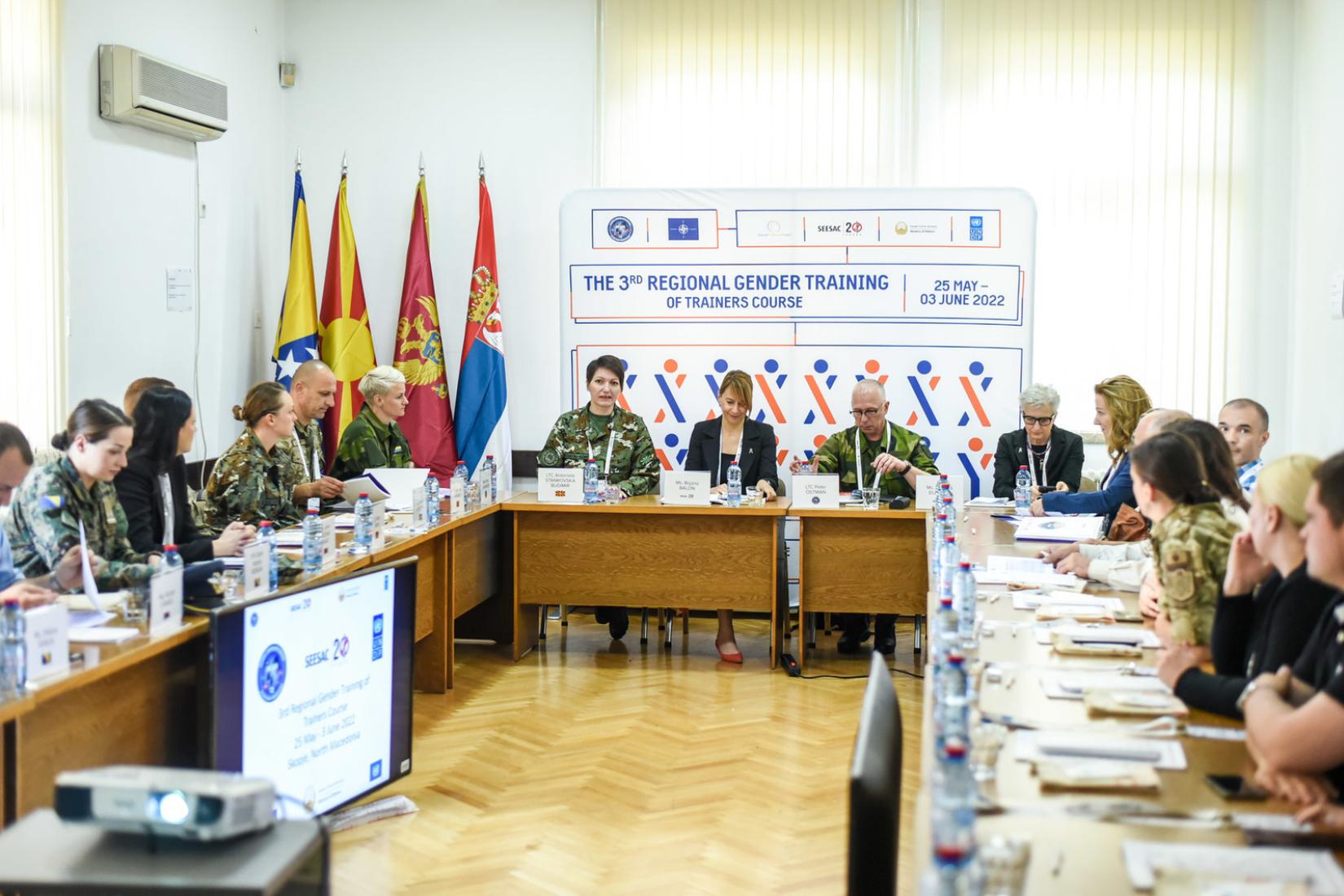
Systematic Integration of Gender Perspective in Military Education
The MoDs achieved a greater understanding of the importance of integrating a gender perspective into military education by developing the Regional Baseline Study on Integrating a Gender Perspective in Military Education and Training - a regional knowledge tool jointly developed in 2022 by the Ministries with SEESAC’s support. The Study represents a unique regional knowledge resource that contains the baseline data on the attained level of integration of gender perspective in military education and training, examples of good practice that already exist in all four systems of defence, and maps the way how to integrate gender in military education and training.
Following the recommendations of the Regional Baseline Study, the project further strengthened MoD’s capacities on integrating a gender perspective in military education, particularly, in increasing the understanding of high-level military commanding officers and decision-makers and in strengthening the Military Academy teaching staff knowledge. Furthermore, to establish standardized gender training, SEESAC supported MoDs in Bosnia and Herzegovina, Montenegro, and Serbia to either develop or update knowledge tools in line with their needs.
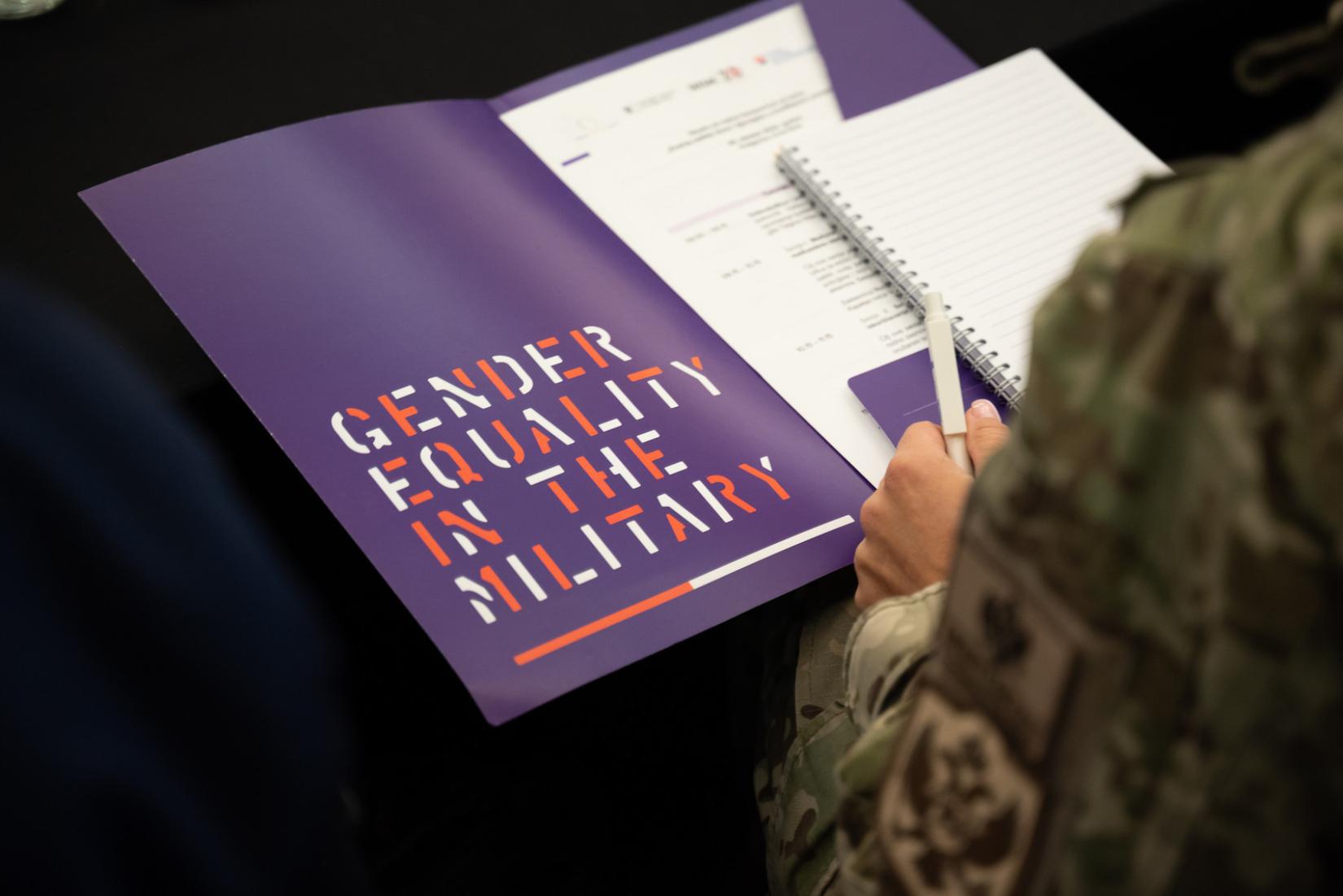
Gender Awareness and Gender Responsive Military Leadership
The MoDs’ leadership was supported through the Gender Coaching Programme which SEESAC conducted in the MoD of Montenegro with the Deputy Chief of General Staff and acting Director General of Human Resources as well as with the State Secretary of the MoD of North Macedonia. In 2022, the MoD of Serbia nominated the Deputy Dean of the Military Academy, the first MoD representative to take part in gender coaching. The Gender Coach Programme is an innovative approach to improving the gender-responsiveness of security institutions by enhancing the skills and fostering the commitment of the senior leadership in these institutions. It enables participants to become leaders in integrating gender into their operations and encourage change in their institutions.
Moreover, the capacities of the MoDs to deliver gender training were strengthened by expanding the Regional Network of Gender Trainers, with additional 17 certified trainers who completed the 3rd Regional Gender Training of Trainers (GToT), a NATO-certified course which prepares instructors to efficiently integrate a gender perspective in military education, training, and exercises, for collective and individual training of officers, NCO’s and soldiers.
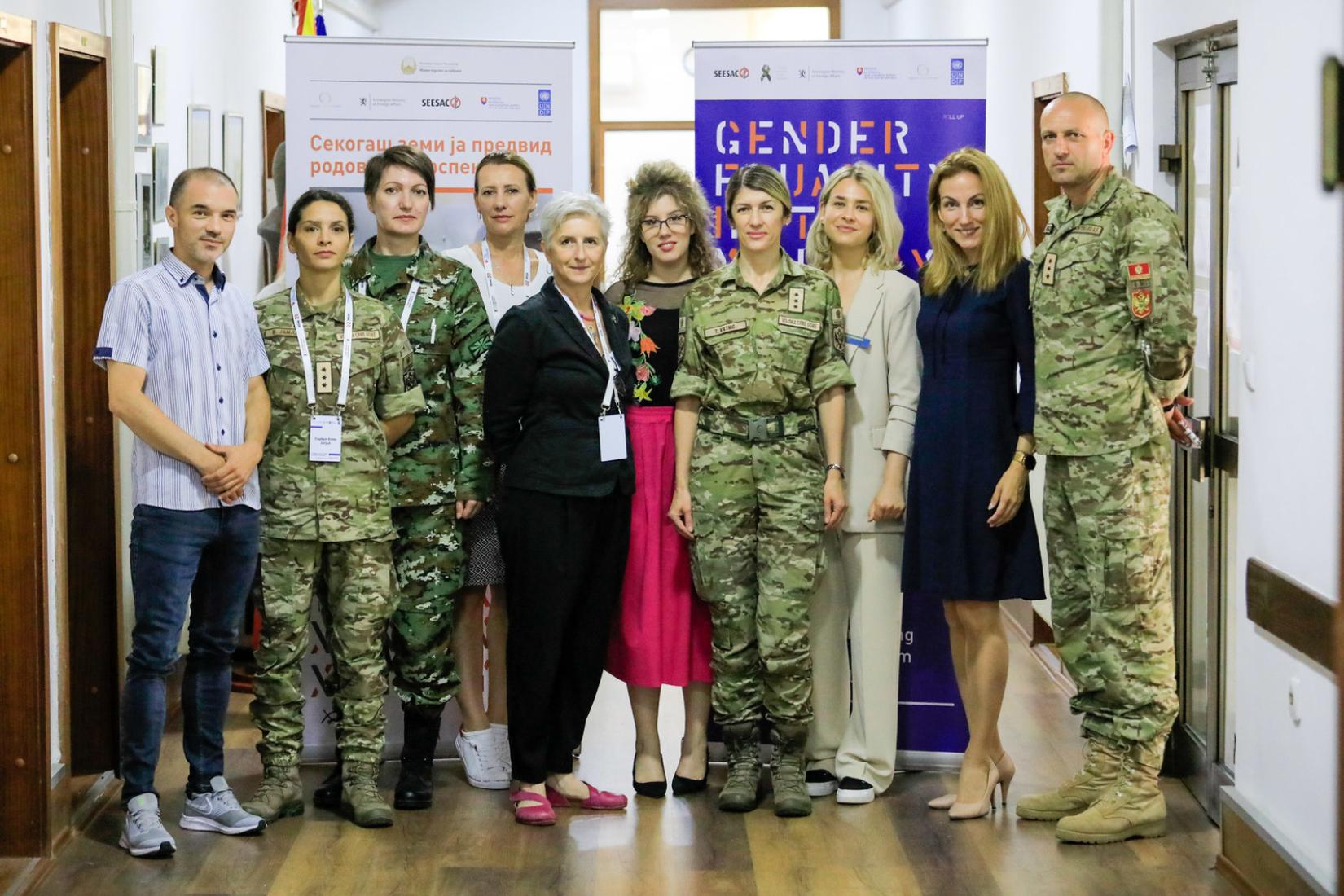
Gender-responsive and Evidence-based Policy Development
The MoDs’ capacities for gender-responsive and evidence-based policy development were strengthened by applying the recommendations of the Regional Youth Perception Survey which was conducted in 2021. The Survey obtained regionally comparable and gender-segregated data on how attitudes and values, socio-economic context, and previous education influence the choice of profession/occupation of young women and men with a specific focus on the military career. MoDs devised innovative ways to attract diverse young candidates interested and eligible for employment in the MoD and AFs. For example, MoD Montenegro introduced a new webpage taking into consideration the Survey findings to promote values relevant to the youth, including gender equality
Combatting Gender-based Discrimination, Sexual Harassment and Abuse
Additionally, the MoDs were supported to efficiently respond to gender-based discrimination, sexual harassment, and abuse and apply results-based monitoring of the Second National Action Plan for UNSCR 1325. Furthermore, MoDs requested support to enhance knowledge on the importance of protecting women and girls in conflict zones and on prevention and protection from misuse of small arms and light weapons with a gender perspective.
In 2022, SEESAC supported the translation of The Regional Handbook - Preventing and Responding to Gender-based Discrimination, Sexual Harassment and Abuse in Ministries of Defence in the Western Balkans, into Ukrainian aiming to share good practices, lessons learned and generating impact beyond the Western Balkans. This Handbook, developed with SEESAC support in 2021, is the result of the knowledge and experiences of representatives of the Ministries of Defence from Bosnia and Herzegovina, Montenegro, North Macedonia, and Serbia. This important regional knowledge tool should help MoDs to further advance prevention and response to gender-based discrimination. Zero tolerance towards gender-based discrimination in the defence system is a precondition for the readiness of armed forces to respond to the complex security challenges that humanity is facing, and will continue to face, in the 21st century and beyond.


